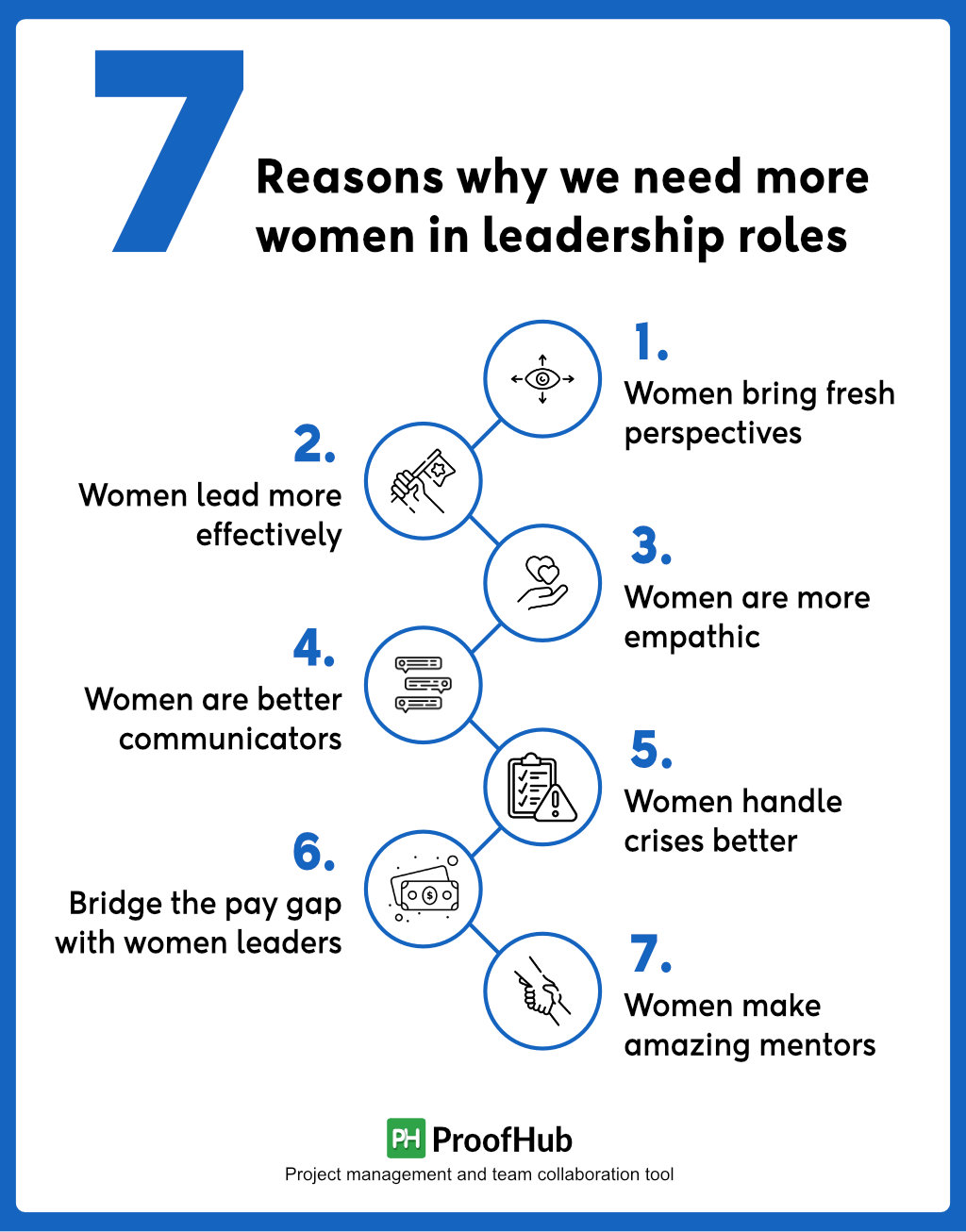An Australian economist Conrad Liveris conducted a study sourcing data from various publicly available sources that stated there are more CEOs named Andrew than the total number of women CEOs. In other words, there were more men with the same first name at the top of Australia’s top 200 significant corporations than women.
Another survey by aauw.org showed that across the United States, among the fortune 500 CEOs, there are only 7.2% women, and only 25% have C-suite jobs in top 1000 companies.
The only purpose of beginning this article with hefty facts and figures is to address the disproportionately low numbers of women in corporate leadership. This has been happening across the globe in all countries, for even when women have been scaling new heights and carving a place for themselves, there still isn’t adequate representation in leadership roles.
In recent decades, there have been calls for greater gender equality and a greater emphasis on the need to bridge the salary gap between men and women. While significant progress has been made in this area, we can still see an acute shortage of women in positions of power.
To tackle this problem, organizations must create better policies and opportunities for women. On the other hand, women require assistance in taking steps ahead and overcoming the tendencies that hold them back.
By definition, Gender diversity is the adequate or equitable representation between both genders.
A comprehensive study by Gallup showed that organizations with a gender-diverse workforce perform monumentally better than those dominated by a single-gender.
So, here I am to give you reasons and more reasons why you, I, and the world needs more women in leadership roles.

1. Women bring fresh perspectives
Diverse experiences and viewpoints play a significant role in fostering innovation since varied perspectives lead to better decision-making. As a result, companies with higher degrees of diversity tend to outgrow those with lower diversity percentages.
When women become leaders, they bring talents, new views, alongside structural and cultural diversity to the companies they work for, resulting in more successful solutions. Women can study more minor details to see what is going on underneath the surface with diverse views and a sense of awareness.
2. Women lead more effectively
Recent research by Business Insider showed that women are perceived as better and more capable leaders in comparison to their male counterparts.
Until the age of 36 to 40, men are thought to be more effective leaders. Women become considerably more effective than men after the age of 40 and continue to do so until they reach the age of 60.
Women executives bring talents, new perspectives, and unique ideas to the table. Still, when these three factors are combined, they help develop new viewpoints that lead to better corporate decision-making.
3. Women are more empathic
In terms of the roles they play throughout their life, empathy is often considered the greatest superpower a female possesses.
An empathic leader can accept that everyone perceives the world differently without passing judgment. They can relate to their team and openly interact with them, and comprehend when they are having difficulties. In brief, an empathic leader can listen to their team rather than fix, solve, or dictate, thus preparing them for success.
Women are more likely to use this form of leadership than more authoritative leadership, making them more effective at influencing others. Empathy also requires being open-minded and understanding diverse points of view. This facilitates the exchange of ideas and gives a fresh perspective about things. As a result, the identification of an effective solution to problems.
4. Women are better communicators
Women are great at communicating and collaborating in everyday aspects of life. Women are considered to communicate with intimacy and connection at the workplace, making them better communicators. On the other hand, male leaders speak with authority and have a one-upmanship mentality.
Communication is thought to be one of a woman’s most vital abilities. Female leaders will use this capacity to have more meaningful dialogues with their bosses, coworkers, and partners, resulting in an open line of communication and a sense of clarity.
An open communication stream enables clarity in performing roles and responsibilities, whether interacting with employers, coworkers, or partners. Female business executives can frequently communicate, straightforward, and open footing.
5. Women handle crises better
Women have the qualities of leadership that are most appealing especially in case of contingency or an emergency of any sort. People-development, the capacity to set clear standards and rewards, the ability to serve as a role model, the ability to inspire, and participatory decision-making are all examples.
Many women, particularly mothers, are trained caregivers who handle domestic crises with compassion and patience. When a woman leader is coping with an emergency, these qualities become extremely important.
6. Women leaders can help bridge the gender pay gap
According to data by the United Nations, globally the pay gap between men and women is 16 percent, meaning women earn 84 percent of what men do.
The gender wage gap exists in organizations and workplaces despite decades of development. Organizations have been looking for a means to close the gender pay gap for a long time, and offering women leadership in organizations is one possible answer.
The salary discrepancy between men and women is more akin to a gender opportunity gap. When men and women begin their careers from the ground up, men are often given more opportunities that lead to higher-paying leadership positions.
7. Women make amazing mentors
The significance of mentors, particularly for the younger generation, cannot be overstated. Everyone, regardless of gender, requires someone to mentor them as they advance in their jobs. Women leaders, in particular, are more vital mentors and coaches of emerging potential than men.
Women are more understanding, strong-willed, tactical, and cognizant in comparison to men and this is precisely what makes them terrific mentors. We need more and more women in mentorship programs and we must also focus on women mentoring women for a bright future.
Wrapping Up
Women leaders are a requirement of the twenty-first century. Organizations must empower women with leadership roles to be more productive and show their latent potential, increasing workplace diversity because it is a challenging undertaking that will require the support and participation of everyone in the company.
And also, wishing all the talented, beautiful, amazing women out there a very Happy International Women’s Day!

